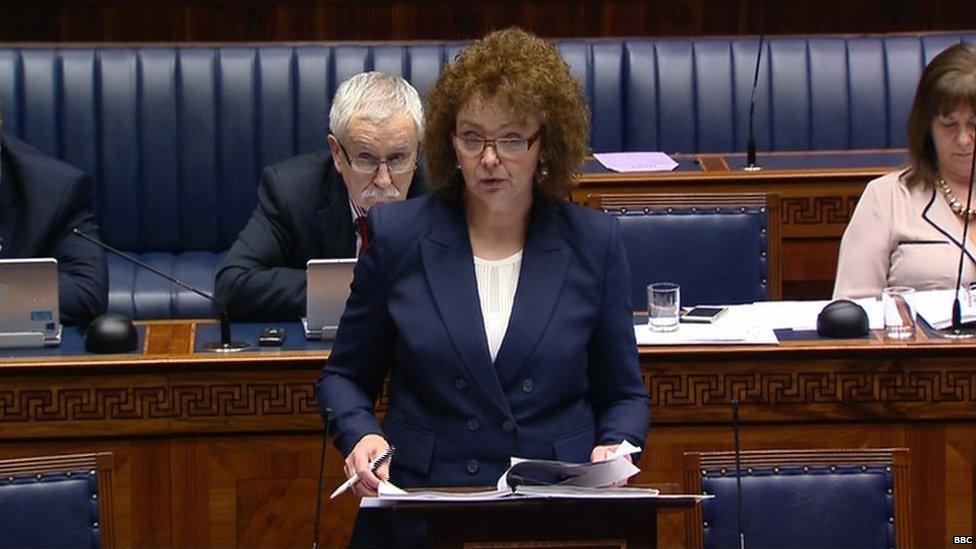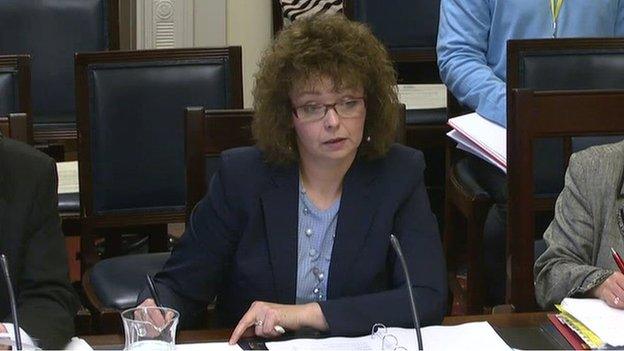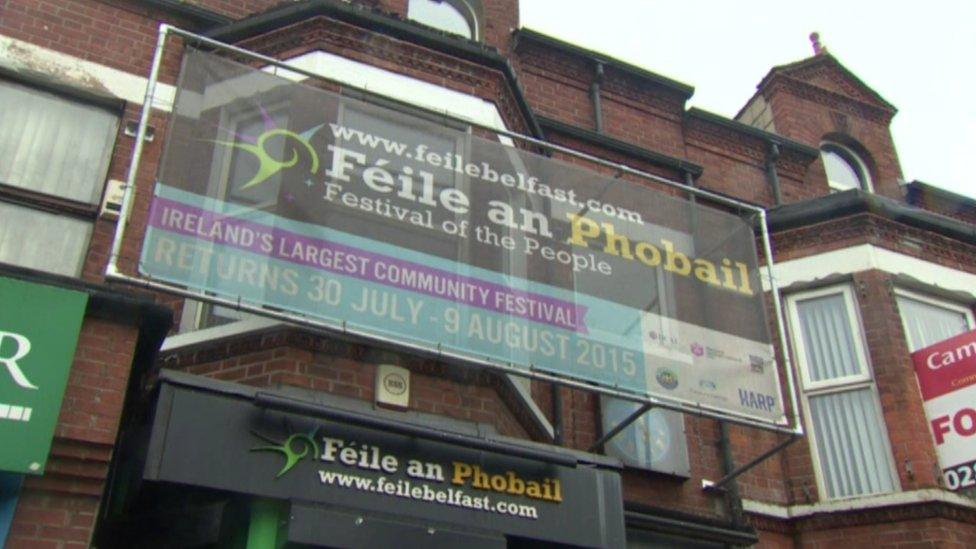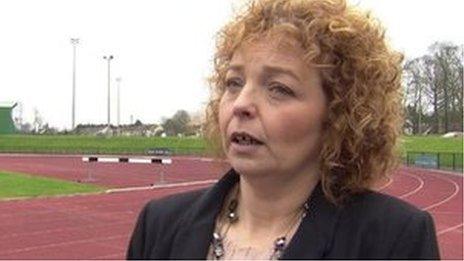NI arts: Stormont committee calls for more funding
- Published

Arts Minister Carál Ní Chuilín was criticised by the DUP during the debate for withdrawing funding for musical instruments for marching bands
The Northern Ireland Assembly's Culture and Arts (DCAL) committee has called for all executive departments to promote and provide money for the arts.
In a new report, the committee said a cross-departmental strategy would lead to more arts activity, especially among working-class communities.
It has called for more publicly-owned art to be displayed in libraries and schools.
It also said funding for musical instruments should be more accessible.
There was disagreement, however, over the funding of marching bands during an assembly debate on the report.
'Totally unjustified'
The committee chair, Nelson McCausland from the Democratic Unionist Party (DUP), criticised DCAL minister Carál Ní Chuilín for withdrawing funding for musical instruments for bands.
"That is one of the most important sectors within many working-class communities," he said.
"This opportunity to support that sector through funding for instruments was abandoned by the minster."
"That was a wrong decision, a retrograde step, and one that was totally unjustified."
However, Sinn Féin MLA Rosie McCorley said that three members of the committee had not been permitted to question the Confederation of Ulster Bands about the actions of some bands.
'Negative view'
"We feel we have missed out on some very valuable information which would have added to the report," she said.
"We would have appreciated hearing the confederation's opinions of the behaviour of some specific bands over recent years which leads many people, and not just the media, to take a negative view of them."
However, there was widespread agreement on other aspects of the committee's 'Inclusion in the Arts of Working Class Communities' report.
It is the result of a two-year inquiry into the level of participation in the arts by people from working-class urban and rural areas.
The wide-ranging inquiry also looked at what stopped people from those areas taking part in the arts or visiting arts venues.
'Costs'
It heard evidence from major arts organisations like the Lyric Theatre, the Metropolitian Arts Centre (MAC) and the Ulster Orchestra as well as a range of community arts organisations.
The report said that "there is a great deal of arts and cultural activity going on in working-class communities".
However, it also found that there were some significant barriers to "disadvantaged, marginalised or deprived communities" when it came to participation in the arts.
These included that arts events cost too much, venues were too hard to get to, or that arts events were not publicised enough.
One respondent to the inquiry also said that there was a perception among some in working-class areas that "they did not 'do' arts and culture".
In total, there are 22 recommendations in the report, including more partnerships between theatres and community groups, better transport to enable people to get to arts venues, especially in rural areas, and more arts in schools.
Speaking during the assembly debate, the minister also welcomed the report.
Ms Ní Chuilín said that the arts should be part of everyone's everyday life.
- Published5 November 2015

- Published29 October 2015

- Published12 August 2012
